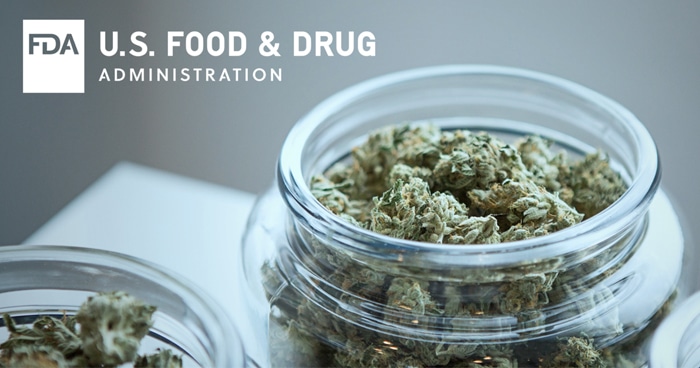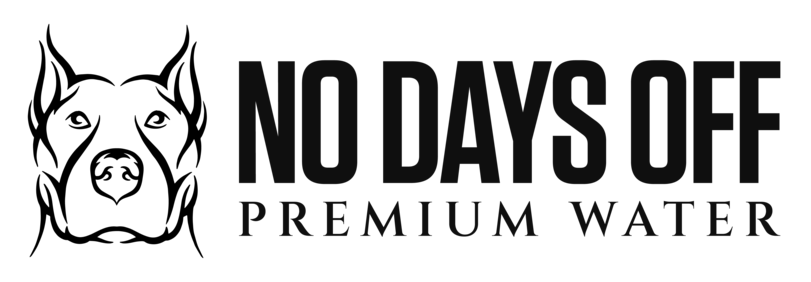FDA Issues Warnings to 15 CBD Companies — and Alerts Consumers of Possible Side Effects

The Food and Drug Administration (FDA) yesterday issued 15 warning letters to cannabidiol (CBD) companies and updated its advice for consumers to follow while regulations are developed. Citing numerous safety concerns and a lack of scientific information, FDA said it cannot recognize CBD as generally recognized as safe (GRAS) for use in human or animal food.
In a press release, FDA Principal Deputy Commissioner Amy Abernethy, M.D., Ph.D. noted that FDA is taking the same approach it uses for other substances.
“We remain concerned that some people wrongly think that the myriad of CBD products on the market, many of which are illegal, have been evaluated by the FDA and determined to be safe, or that trying CBD ‘can’t hurt,’” Abernethy said in the release. “We want to be clear that a number of questions remain regarding CBD’s safety – including reports of products containing contaminants, such as pesticides and heavy metals – and there are real risks that need to be considered.”
The companies that received warning letters either added CBD to foods or made medical claims, a violation of the Food, Drug & Cosmetic (FD&C) Act. Eleven companies that sell CBD food were cited for one or both violations. Perhaps the hardest hit, product-wise, was California-based Plant Organix, which produces CBD foods including gummies, peanut butter and banana chips; its website is currently unavailable. Others deemed “unapproved new drugs” include gummies from KOI CBD, Pink Collections, Natural Native, Bella Rose, Curapure, and Daddy Burt. Private I Salon (along with CBD Cookies), Noli Oil (along with watermelon rings and caramels) and Infinite CBD (along with nondairy creamer) were also cited for selling unapproved gummies. Meanwhile, Apex Hemp Oil’s CBD Chocolate Bar and CBD Hemp Protein Powder, along with Sunflora’s SunMed Peach Rings, Sour Bears, Sour Worms and Watermelon Rings, were warned over selling products containing an “unsafe food additive.” The agency previously sent companies warning letters for similar violations.
“Given the lack of a full body of evidence, [we] can’t draw the conclusion that any company can add CBD to a human or animal food,” an FDA spokesperson told NOSH. “It’s a process — we’re very clear about what our specific safety concerns are.”
In a separate consumer guidance, the FDA cited a wide range of concerns from broad (consumers using CBD as a blanket solution) to specific (CBD as a potential cause of liver injury, diarrhea and male reproductive interference.) FDA officials hadn’t addressed such details in previous announcements, but an FDA spokesperson told NOSH these adverse reactions were observed during the agency’s nonclinical review of Epidiolex — the only FDA approved drug containing CBD — in 2017.
Thus, similar issues could potentially result from CBD use, so the FDA can’t yet certify CBD as “safe.” In the marketplace, CBD has been touted for a variety of benefits, from aiding in sleep to muscle recovery to helping fight acne. And while a 2017 World Health Organization report found no adverse effects associated with CBD, the FDA is arguing that more evidence is needed.
“We recognize the significant public interest in CBD and we must work together with stakeholders and industry to fill in the knowledge gaps about the science, safety and quality of many of these products,” Abernethy said.
Having an unclear regulatory framework is a burden on both emerging and established businesses: Tilray, which owns hemp and CBD company Manitoba Harvest, saw its stock fall 1% yesterday, according to MarketWatch. The FDA held a hearing in June with manufacturers, researchers, advocates and opponents presenting evidence — and opened a public docket to further review insights and research. But if the hearing made one thing clear, it’s that the industry is still in murky territory.
After the United States Department of Agriculture (USDA) released its interim hemp rules last month, many members of the food and drink industry felt hopeful that more cohesive FDA regulation for CBD products was underway. Longtime hemp advocate Sen. Mitch McConnell this week met with Dr. Stephen Hahn, a nominee to become the FDA’s next commissioner, to push for this regulation by touting hemp legalization’s positive impact on Kentucky’s economy. McConnell, who wrote the Farm Bill legislation that federally legalized hemp last December, said he hears from farmers, processors and manufacturers about the need for CBD framework.
“I look forward to working closely with Dr. Hahn on several important issues for Kentucky,” Sen. McConnell said in a release. “Like many Kentuckians who are taking advantage of hemp’s legalization, I am eager for FDA’s plans to create certainty for CBD products.”
Meanwhile, along with food and drink producers, members of the cannabis industry think the delay is causing more problems.
“The [FDA’s] inaction has caused the public health concerns they are ostensibly trying to avoid when these products come up in the gray market,” Josh Weinstein, founder of advocacy organization CannaGather told NOSH. “The time has come for action, and not the prohibition kind.”
Maria Nicusanti, director of business development for California-based RL Food Testing Laboratory, said a lack of regulation hasn’t slowed the steady flow of labeling requests the lab has received for CBD gummies, cookies and other products. But guidelines, she said, will help give consumers “comfort” and ease the burden on brands to sort through complex regulations.
“It’s a new product that has its place — it just has to be done securely and safely with checks and balances,” Nicusanti said.
















